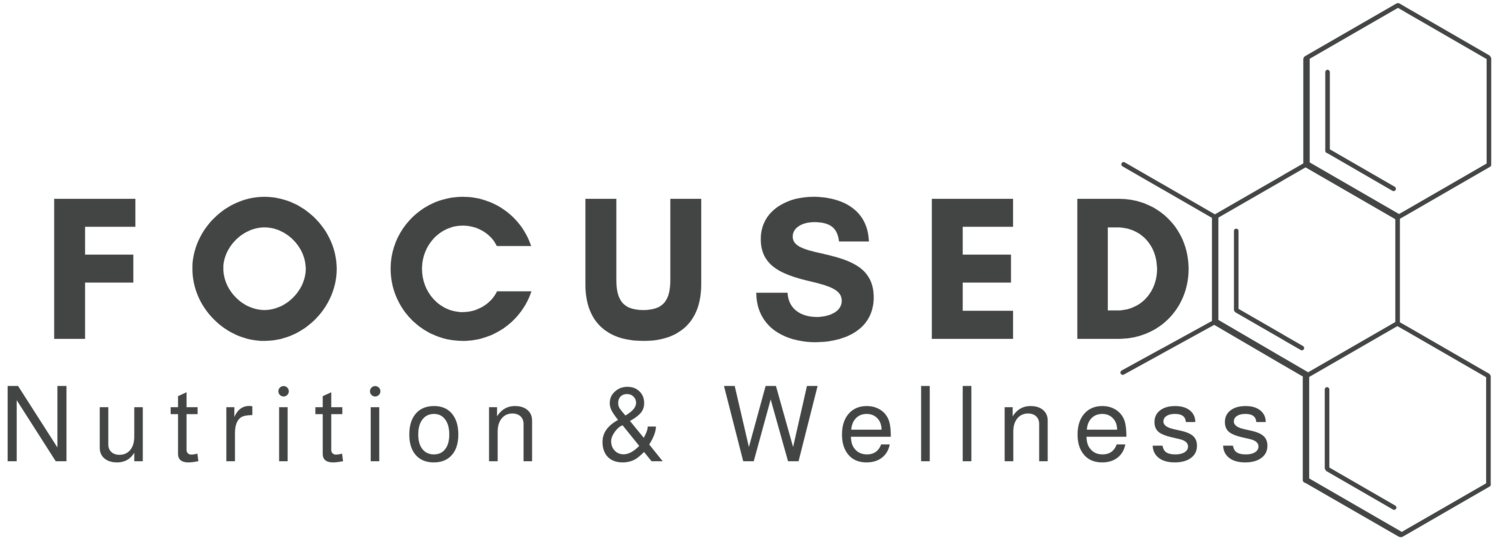
“Put simply, what you eat directly affects the structure and function of your brain and, ultimately, your mood”
- Eva Selhub, MD Harvard Health Blog
Key Components of Brain-Body Nutrition
Nutrient Deficits
When our brain and body are not getting adequate levels of key brain-supporting nutrients, they are unable to function optimally.
Gut-Brain Axis
A bidirectional communication between our gut and brain, with a special focus on the role that our gut microbes play in brain health.
Oxidative Stress
A damaging state that our brains are highly susceptible to, but can be improved with an increased intake of antioxidant-rich foods.
Inflammation
A process that, when chronic, is linked with many physical and psychological conditions, and is influenced by food and lifestyle choices.
Anxiety and Depression
Nutritional Psychiatry is an emerging field of research which examines how nutrition impacts mood, behavior, and mental health.
In 2015, a team of scientists concluded that “emerging and compelling evidence for nutrition as a crucial factor in the high prevalence and incidence of mental disorders suggests that diet is as important to psychiatry as it is to cardiology, endocrinology, and gastroenterology”
An analysis of 21 studies found that a diet rich in fruit, vegetables, whole grains, fish, olive oil, and low-fat dairy was associated with a decreased risk of depression, whereas a diet high in red and/or processed meat, refined grains, sweets, butter, and high-fat dairy products was associated with a increased risk of depression.
Stress
“The irony of stress is that people suffering stress need a more nutritionally dense diet but often opt for comfort foods...consequently inducing a situation of nutrient depletion that further compromises the metabolic systems.”
Stress-Related Weight Difficulties
Cortisol, a hormone released in response to stress, is considered the main culprit in stress-induced weight gain. Not only does it stimulate appetite and sugar cravings, but it also promotes abdominal fat storage, which in turn, ends up increasing cortisol production; a difficult cycle to break if relying only on will-power.
Multiple studies have demonstrated that overweight and obese adults lose more weight and make healthier dietary choices when stress management techniques are added to weight loss programs.
Stress-Induced Gastrointestinal Issues
When a person becomes stressed, digestion slows or may even stop completely, so that the body can focus all of its energy on responding to a perceived “threat.” This can lead to a variety of gastrointestinal issues, or worsen the symptoms of chronic gastrointestinal conditions like IBS or IBD.
In addition, stress alters our gut microbiome, which can not only worsen gut inflammation, but due to the gut-brain connection, also impacts anxiety and depression symptoms.
Cognitive Decline
“Effective pharmaceutical treatments for age-related cognitive decline are lacking, emphasizing the importance of prevention strategies. There is extensive evidence supporting a relationship between diet and cognitive functions.”
Our brains are particularly susceptible to oxidative stress, which contributes to age-related cognitive decline. Luckily, certain foods, nutrients, and lifestyle factors can greatly reduce oxidative stress in the brain, slowing cognitive decline and delaying the onset of Alzheimer’s Disease.
A meta-analysis involving over 34,000 participants showed that better adherence to a Mediterranean diet was correlated with a 21% reduced risk of developing cognitive disorders and a 40% reduced risk of Alzheimer’s Disease.





